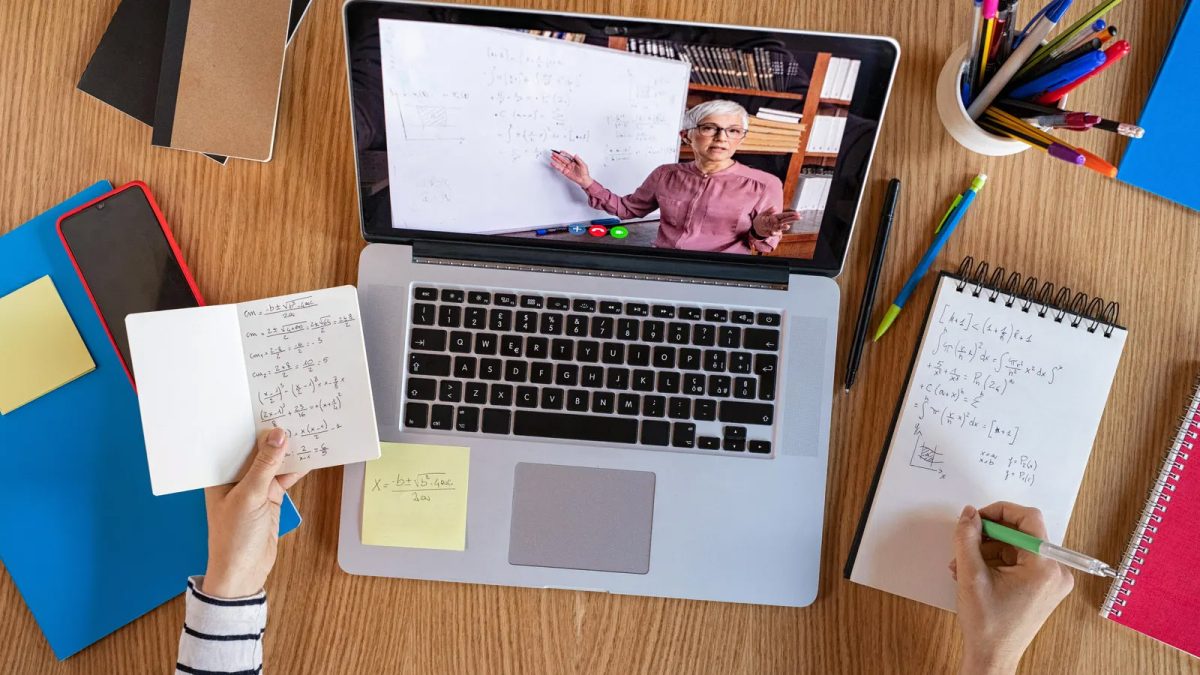When the COVID-19 pandemic forced 70% of public schools to move to online learning, Riverside City College students had to quickly adapt. Some enjoyed the freedom of learning from home, while others missed the energy of campus.
Now that in-person classes have returned, students are debating which format is best for learning. Online courses can offer convenience, but in-person classes provide face-to-face interaction. Each option has pros and cons, and the choice can define your RCC experience in different ways.
The real question to ask is: How do you know which is right for you?
I have taken almost every kind of class RCC has to offer. I started my first semester with all in-person classes, added some online classes during the shorter semesters, and took hybrid classes to fit my work schedule. In high school, I knew I preferred to be immersed in a classroom, free from distractions. After repeating the cycle of a long commute on a weekly basis, I realized that the drive to school began to bother me.
If my class were to start at 9 a.m., I would have to be on the road by 8:30 a.m. But not only would I have to calculate time for the drive, I would also have to make sure I had enough time to park. Parking is a nightmare the first few weeks of the semester. With all that time added up, why would I want to wake up for a class at 6:30 a.m. when I could get some extra sleep, and learn from the comfort of my own home?
Online classes aren’t just about comfort, they’re a game changer for nontraditional students. Many community college students juggle jobs, family or other responsibilities alongside school. The flexibility of online learning allows students to study wherever they are and better manage their personal lives. Remote learning can also be used to protect someone’s safety, especially as Immigration Enforcement cracks down in the busiest spots of Southern California. Within the summer, it’s been seen that students in the Los Angeles Unified School District have switched over to online learning amid the aggressive enforcement of ICE in the county. Online learning in this context becomes more than a convenience, but a critical tool for students who feel unsafe leaving home. Remote classes preserve their education and help prevent drops in attendance or enrollment. Although it is heartbreaking that students cannot feel safe on campus, the silver lining is the fact students still have access to education.
However, staying online and taking classes alone can deprive you of a sense of community at school. Viewpoints is the main reason I go on campus so often. Being in the newsroom and getting to know my classmates during my first year shaped my attitude about coming to campus. I was looking forward to spending time there and talking to people within the same major, or common passions, as me. Watching my classmates had a strong work ethic and bond inspired me to do the same.
Suddenly, the commute was worth it.
During my first semester, I also made friends in my English class. Sometimes, we’ll all catch up if we’re on campus at the same time. It’s those small things that make you want to come onto campus and be involved with other students.
In-person classes motivate me to become a better student, and keep me from the distractions at home. Ultimately it all depends on your lifestyle, but that is what’s great about RCC. You have the freedom and comfort to still get your education, without conflict.
If you prioritize independence, and the ability to balance school with other responsibilities, online learning provides the freedom to study on your own terms.
On the other hand, if you are looking for a sense of community and the structure of a traditional classroom, in-person classes can offer a more involved academic experience.
Whichever path you choose, RCC ensures that you have the opportunity to reach your personal goals on your schedule, and in your own way.








